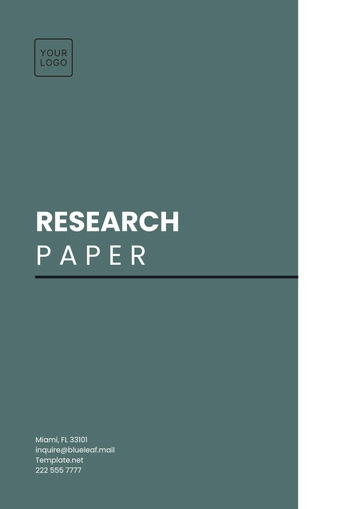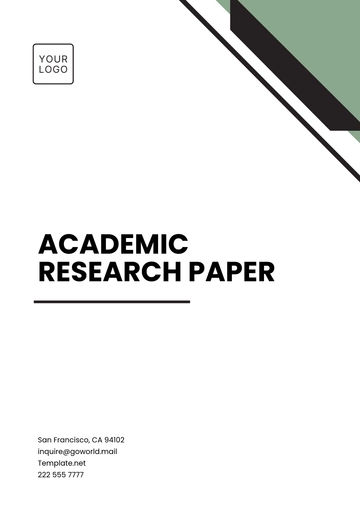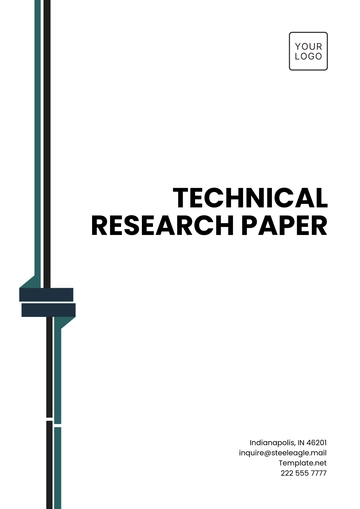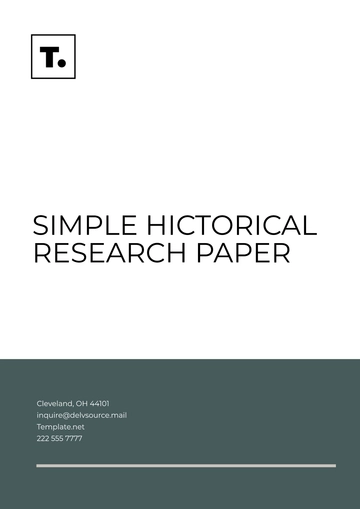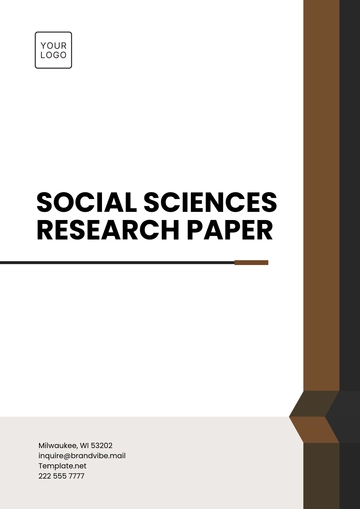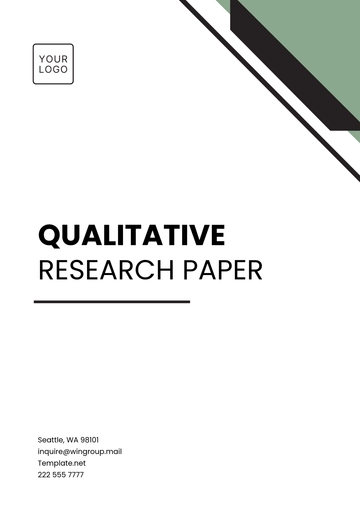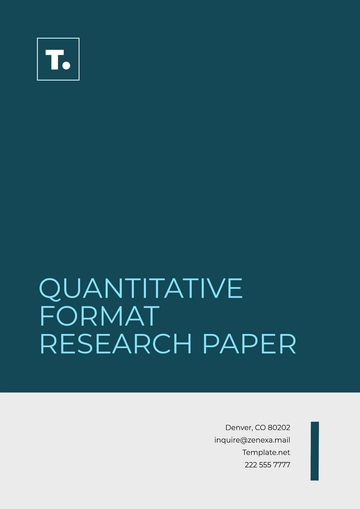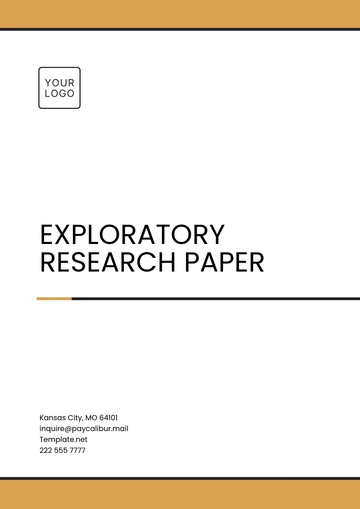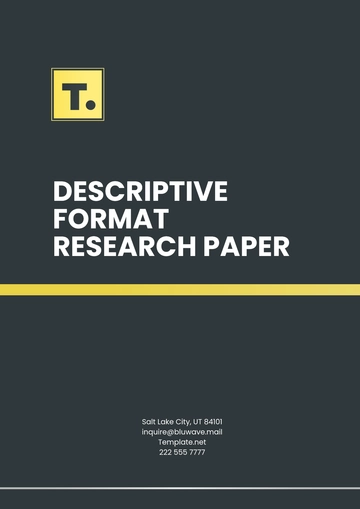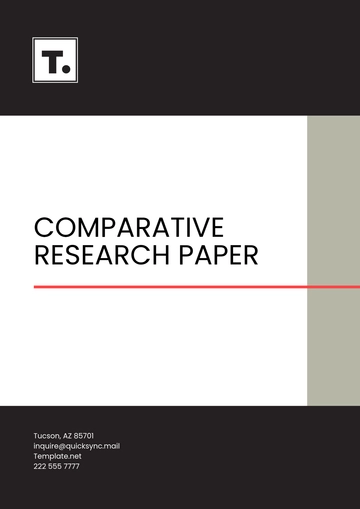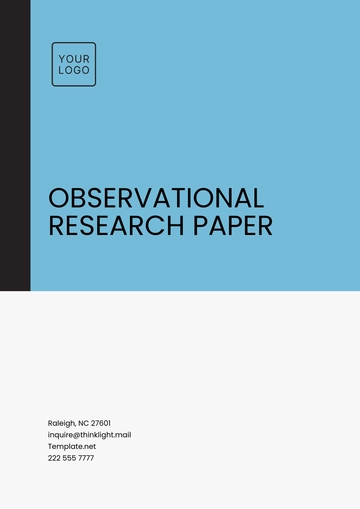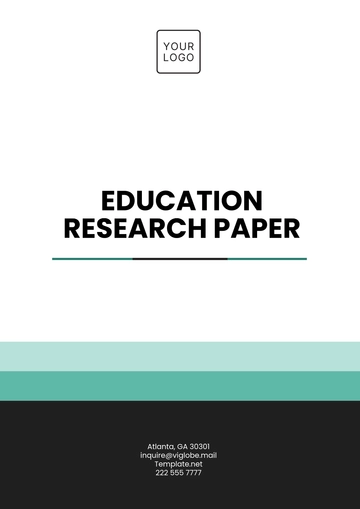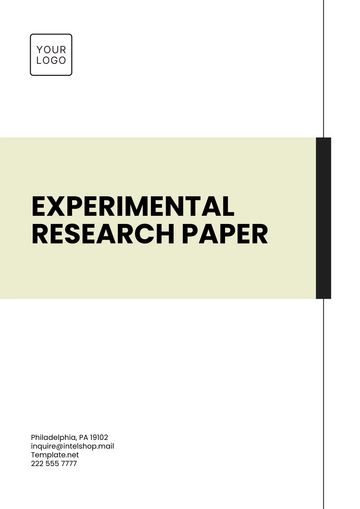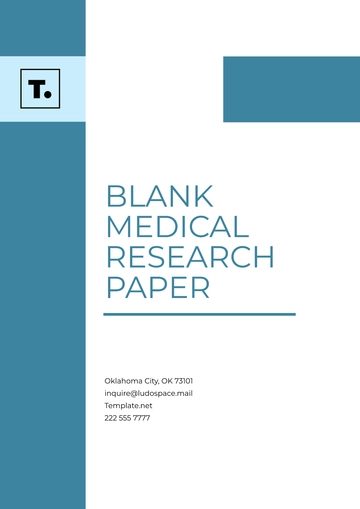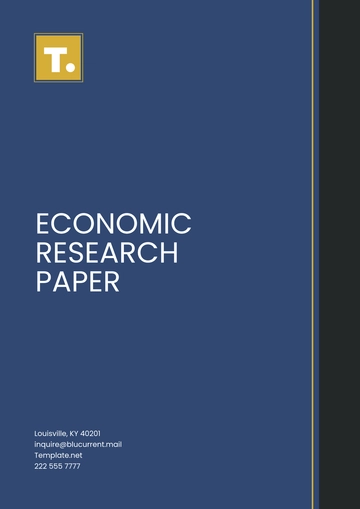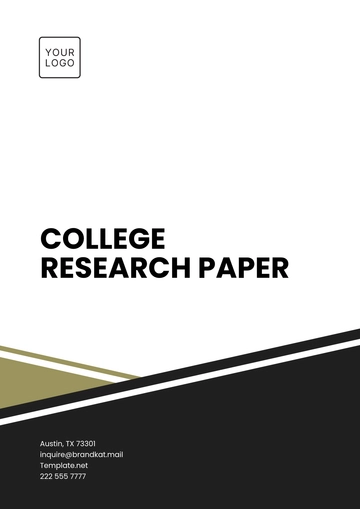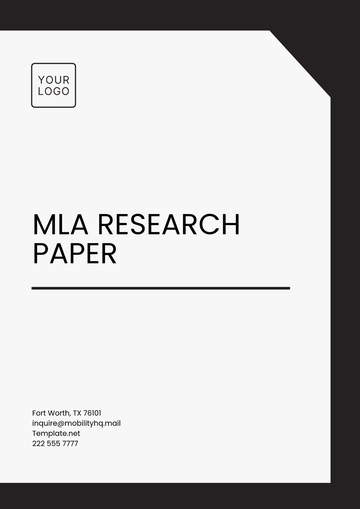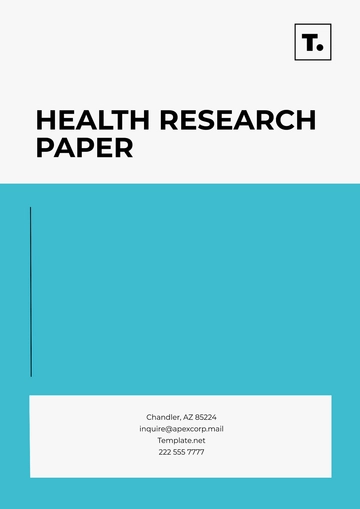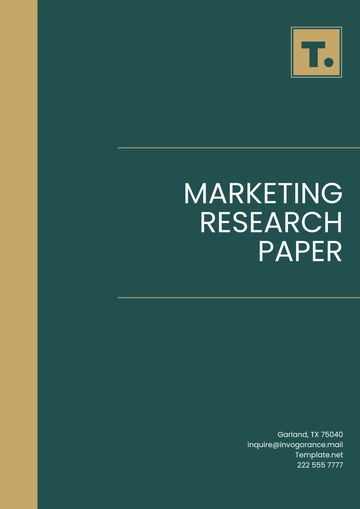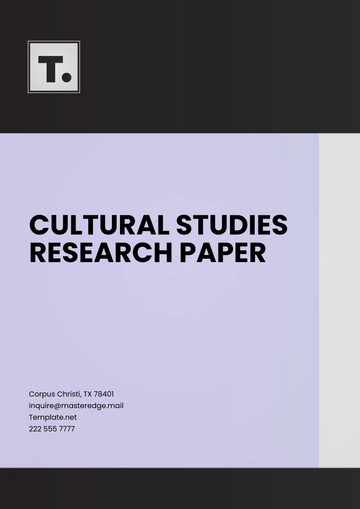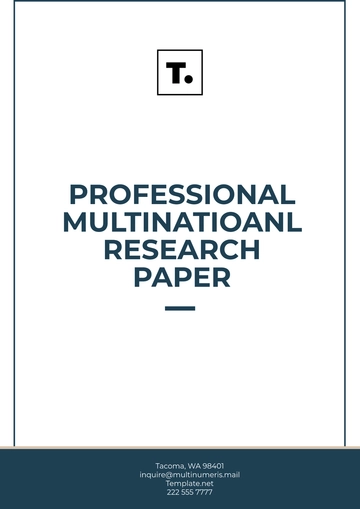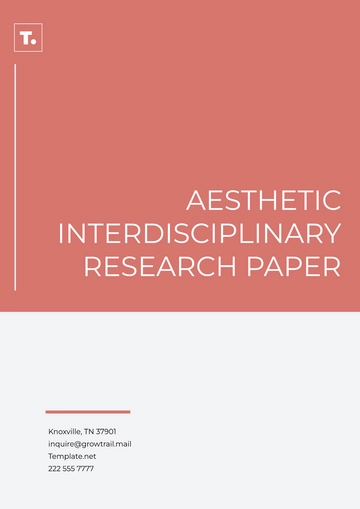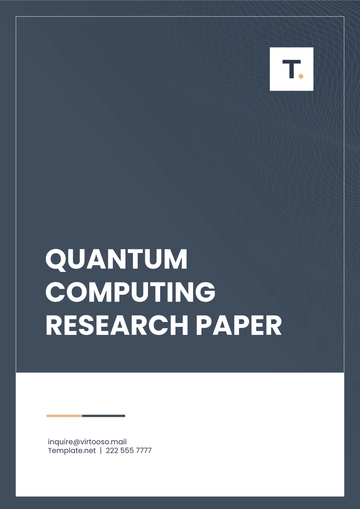Free Research Brief
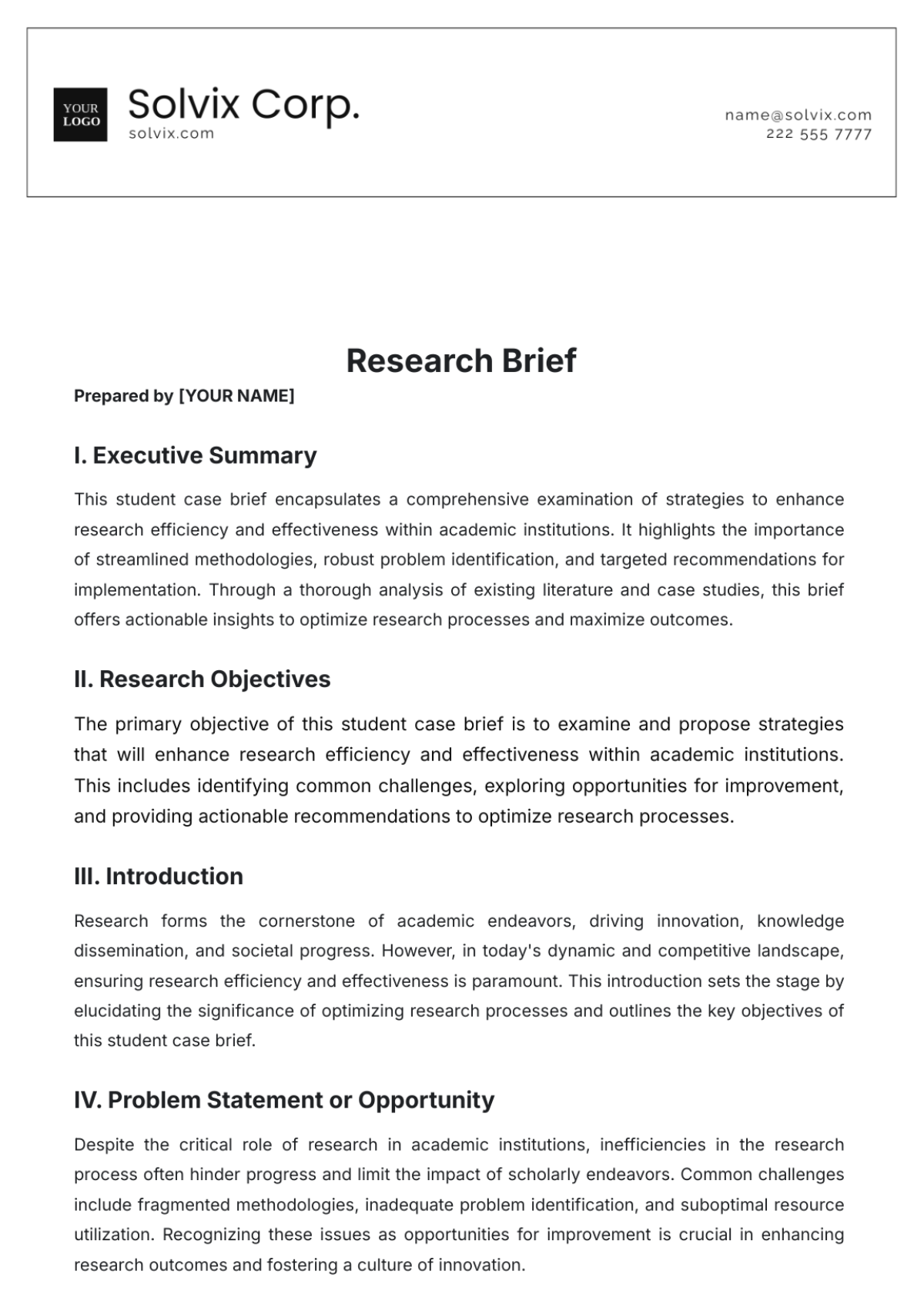
Prepared by [YOUR NAME]
I. Executive Summary
This student case brief encapsulates a comprehensive examination of strategies to enhance research efficiency and effectiveness within academic institutions. It highlights the importance of streamlined methodologies, robust problem identification, and targeted recommendations for implementation. Through a thorough analysis of existing literature and case studies, this brief offers actionable insights to optimize research processes and maximize outcomes.
II. Research Objectives
The primary objective of this student case brief is to examine and propose strategies that will enhance research efficiency and effectiveness within academic institutions. This includes identifying common challenges, exploring opportunities for improvement, and providing actionable recommendations to optimize research processes.
III. Introduction
Research forms the cornerstone of academic endeavors, driving innovation, knowledge dissemination, and societal progress. However, in today's dynamic and competitive landscape, ensuring research efficiency and effectiveness is paramount. This introduction sets the stage by elucidating the significance of optimizing research processes and outlines the key objectives of this student case brief.
IV. Problem Statement or Opportunity
Despite the critical role of research in academic institutions, inefficiencies in the research process often hinder progress and limit the impact of scholarly endeavors. Common challenges include fragmented methodologies, inadequate problem identification, and suboptimal resource utilization. Recognizing these issues as opportunities for improvement is crucial in enhancing research outcomes and fostering a culture of innovation.
V. Research Scope
The scope of this brief encompasses a thorough analysis of current practices, challenges, and opportunities in research management within academic institutions. It considers various aspects such as methodologies, problem identification, resource utilization, and stakeholder engagement. Additionally, the brief examines case studies to highlight successful approaches and best practices for consideration.
VI. Key Findings
Fragmented Methodologies: Academic institutions suffer from fragmented research methodologies, causing inefficiencies and redundant efforts.
Inadequate Problem Identification: Neglecting problem identification leads to research projects lacking clear objectives and relevance, hindering effectiveness.
Suboptimal Resource Utilization: Limited resources aren't optimally used, impeding research progress and efficiency.
Opportunities for Improvement: Despite challenges, institutions can enhance research efficiency through strategic initiatives and process optimizations.
VII. Recommendations
Strategic Initiatives: Align strategic initiatives with institutional goals to enhance research efficiency. Tailor initiatives to address specific challenges and opportunities identified through analysis.
Process Optimizations: Identify and streamline research processes to reduce inefficiencies and improve workflows. Implement automation tools and redesign workflows for enhanced productivity and collaboration.
Capacity-Building Efforts: Invest in researcher capacity-building through training programs and mentorship opportunities. Empower researchers with skills and resources to thrive in their fields and foster knowledge sharing within the academic community.
VIII. Implementation Plan
Stakeholder Engagement: Engage stakeholders to secure buy-in and alignment with proposed strategies. Communicate rationale and solicit feedback for better incorporation of insights.
Resource Allocation: Assess and allocate resources efficiently for strategy implementation. Ensure sustainability and scalability while supporting initiatives.
Timeline Establishment: Develop a clear timeline with milestones for implementation phases. Maintain momentum and ensure timely progress toward goals.
Performance Metrics Definition: Define relevant metrics aligned with research optimization goals. Evaluate effectiveness and provide insights for continuous improvement.
IX. Conclusion
In conclusion, this student case brief underscores the importance of prioritizing research efficiency and effectiveness within academic institutions. By addressing challenges, leveraging opportunities, and implementing targeted recommendations, institutions can cultivate a culture of excellence in research, driving impactful contributions to knowledge advancement and societal development.
- 100% Customizable, free editor
- Access 1 Million+ Templates, photo’s & graphics
- Download or share as a template
- Click and replace photos, graphics, text, backgrounds
- Resize, crop, AI write & more
- Access advanced editor
Streamline your academic and professional research with Template.net's Research Brief Template. This editable, customizable template is designed to succinctly summarize your research findings, making them accessible and impactful. Ideal for researchers across disciplines, it's easily editable in our AI Editor Tool, allowing for a tailored presentation of your work. Make your research resonate with a wider audience.
